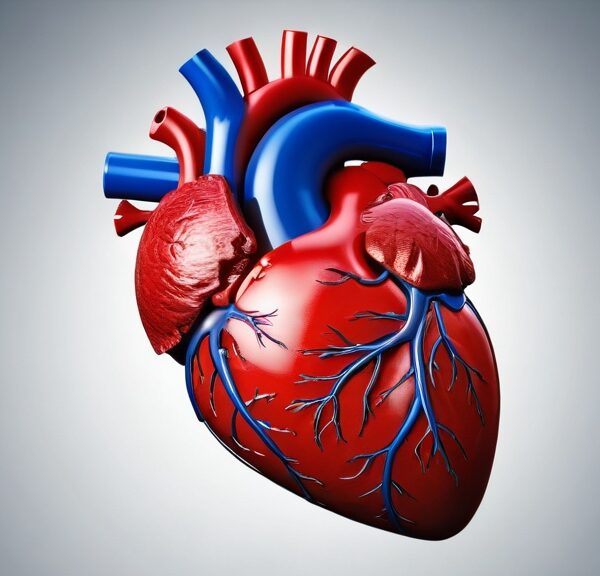Regular bloodwork plays a crucial role for athletes using performance-enhancing substances. It helps monitor health and performance, ensuring athletes stay in optimal condition. Blood tests can reveal vital information about an athlete’s physiological state, allowing for informed decisions regarding training and supplementation.
Enhanced athletic performance carries both risks and benefits. While performance-enhancing substances can lead to improved results, they may also pose significant health risks. Regular bloodwork helps mitigate these risks by identifying potential issues early on, allowing athletes to adjust their strategies accordingly.
Key Takeaways
- Regular bloodwork is important for athletes using performance-enhancing substances to monitor their health and performance.
- Pre-bloodwork preparation includes fasting, hydration, and avoiding certain medications or supplements that could interfere with test results.
- Complete Blood Count (CBC) measures red blood cells, white blood cells, and platelets, with potential implications for enhanced athletes.
- Liver function tests measure liver enzymes and bilirubin levels, with potential implications for enhanced athletes.
- Monitoring hormone levels, kidney function, electrolyte levels, and blood glucose is crucial for enhanced athletes, with potential implications for abnormal results.
Pre-Bloodwork Preparation
Proper preparation before bloodwork is essential for accurate results. Athletes should follow specific guidelines regarding fasting and hydration. Typically, fasting for at least 8 to 12 hours before the test ensures that blood glucose and lipid levels are accurate.
Hydration is equally important. Drinking water helps maintain blood volume and can make the blood draw easier. However, athletes should avoid consuming any food or drinks other than water during the fasting period.
Certain medications and supplements can interfere with blood test results. Athletes should consult their healthcare provider about which substances to avoid before testing. Common culprits include vitamins, herbal supplements, and certain over-the-counter medications.
Complete Blood Count (CBC)

A Complete Blood Count (CBC) measures various components of blood, providing insight into an athlete’s overall health. It assesses red blood cells, white blood cells, and platelets, which are crucial for oxygen transport, immune function, and clotting. Normal ranges for red blood cells typically fall between 4.7 to 6.1 million cells per microliter for men and 4.2 to 5.4 million for women.
White blood cell counts usually range from 4,500 to 11,000 cells per microliter. Platelet counts should be between 150,000 and 450,000 platelets per microliter. Abnormal CBC results can indicate various health issues for enhanced athletes.
Low red blood cell counts may suggest anemia, while elevated white blood cell counts could signal infection or inflammation. Monitoring these values helps athletes maintain optimal performance and health.
Liver Function Tests
Liver function tests are vital for athletes, especially those using performance-enhancing substances. These tests measure liver enzymes and bilirubin levels, providing insight into liver health and function. Normal ranges for liver enzymes include alanine aminotransferase (ALT) levels of 7 to 56 units per liter and aspartate aminotransferase (AST) levels of 10 to 40 units per liter.
Bilirubin levels should typically remain below 1.2 milligrams per deciliter. Abnormal liver function test results can have serious implications for enhanced athletes. Elevated enzyme levels may indicate liver damage or stress, often linked to substance use.
Regular monitoring helps athletes identify potential liver issues early and take necessary precautions.
Lipid Panel
The lipid panel assesses cholesterol and triglyceride levels, which are crucial for cardiovascular health in athletes. This test provides valuable information about an athlete’s risk of heart disease, especially when using performance-enhancing substances. Normal ranges for total cholesterol should be below 200 mg/dL, with low-density lipoprotein (LDL) levels ideally under 100 mg/dL.
Triglyceride levels should remain below 150 mg/dL for optimal health. Abnormal lipid panel results can indicate increased cardiovascular risk for enhanced athletes. High cholesterol or triglyceride levels may lead to heart problems over time.
Regular testing allows athletes to manage their lipid profiles effectively.
Hormone Levels

Hormone tests are essential for understanding the hormonal balance in enhanced athletes. These tests often include measurements of testosterone, estrogen, and other relevant hormones that influence performance and recovery. Normal testosterone levels typically range from 300 to 1,000 ng/dL for men and 15 to 70 ng/dL for women.
Estrogen levels vary widely but generally fall between 15 to 350 pg/mL depending on the phase of the menstrual cycle in women. Abnormal hormone levels can significantly impact an athlete’s performance and overall health. Low testosterone may lead to decreased muscle mass and energy levels, while imbalances in estrogen can affect recovery and mood.
Regular monitoring helps athletes maintain hormonal balance.
Kidney Function Tests
Kidney function tests assess how well the kidneys filter waste from the blood. These tests are particularly important for athletes using performance-enhancing substances that may strain kidney function. Normal ranges for creatinine levels typically fall between 0.6 to 1.2 mg/dL for adults.
Blood urea nitrogen (BUN) levels should remain between 7 to 20 mg/dL for healthy individuals. Abnormal kidney function test results can indicate potential issues for enhanced athletes. Elevated creatinine or BUN levels may suggest impaired kidney function or dehydration.
Regular testing helps athletes ensure their kidneys remain healthy and functional.
Electrolyte Levels
Electrolyte tests measure essential minerals in the body that help regulate various physiological functions. For athletes, maintaining proper electrolyte balance is crucial for optimal performance and recovery. Normal ranges for sodium levels typically fall between 135 to 145 mEq/L, while potassium levels should remain between 3.5 to 5.0 mEq/L.
Other electrolytes like calcium and magnesium also play vital roles in muscle function and hydration. Abnormal electrolyte levels can lead to serious complications for enhanced athletes. Low sodium or potassium levels may cause muscle cramps or weakness, while high levels can lead to cardiac issues.
Regular monitoring helps athletes maintain electrolyte balance during training and competition.
Blood Glucose Levels
Monitoring blood glucose levels is essential for athletes using performance-enhancing substances. Fluctuations in glucose can impact energy levels and overall performance during training or competition. Normal fasting blood glucose levels should range from 70 to 99 mg/dL, while hemoglobin A1c levels should ideally remain below 5.7%.
These measurements provide insight into an athlete’s metabolic health over time. Abnormal blood glucose levels can have significant implications for enhanced athletes. High glucose levels may indicate insulin resistance or diabetes, while low levels can lead to fatigue and decreased performance.
Regular monitoring helps athletes manage their energy levels effectively.
Additional Tests for Enhanced Athletes
Enhanced athletes may benefit from additional specialized blood tests beyond standard panels. These tests can provide deeper insights into specific health concerns related to performance-enhancing substance use. Tests such as vitamin D levels, inflammatory markers, or genetic testing can offer valuable information about an athlete’s unique physiology.
Understanding these factors can help tailor training and nutrition strategies more effectively. Comprehensive bloodwork allows enhanced athletes to optimize their health and performance further. By identifying potential deficiencies or imbalances early on, they can make informed decisions about supplementation and lifestyle changes.
Interpreting Bloodwork Results
Understanding bloodwork results is crucial for enhanced athletes seeking to optimize their health. Athletes should familiarize themselves with normal ranges and potential implications of abnormal findings. Consulting with a healthcare professional is essential when interpreting results.
They can provide guidance on necessary lifestyle changes or interventions based on individual test outcomes. Regular bloodwork monitoring is vital for enhanced athletes to maintain optimal health and performance. By staying proactive about their health, they can address potential issues before they become significant problems, ensuring long-term success in their athletic endeavors.
FAQs
What is a bloodwork checklist for enhanced athletes?
A bloodwork checklist for enhanced athletes is a comprehensive list of blood tests that are recommended for individuals who use performance-enhancing substances such as anabolic steroids, growth hormone, or other drugs to improve athletic performance.
Why is a bloodwork checklist important for enhanced athletes?
A bloodwork checklist is important for enhanced athletes because it helps to monitor the impact of performance-enhancing substances on their overall health. It can identify potential health risks and provide valuable information for making informed decisions about their training and drug use.
What are some common blood tests included in a bloodwork checklist for enhanced athletes?
Common blood tests included in a bloodwork checklist for enhanced athletes may include complete blood count (CBC), liver function tests, lipid profile, kidney function tests, hormone levels (such as testosterone and estrogen), and markers of cardiovascular health.
How often should enhanced athletes get bloodwork done?
The frequency of bloodwork for enhanced athletes may vary depending on individual factors such as the type and dosage of performance-enhancing substances used, overall health status, and training intensity. However, it is generally recommended to get bloodwork done at least every 3-6 months.
Where can enhanced athletes get bloodwork done?
Enhanced athletes can get bloodwork done at a medical laboratory or through a healthcare provider such as a doctor or a sports medicine specialist. Some athletes may also choose to use specialized services that cater to the needs of individuals using performance-enhancing substances.



